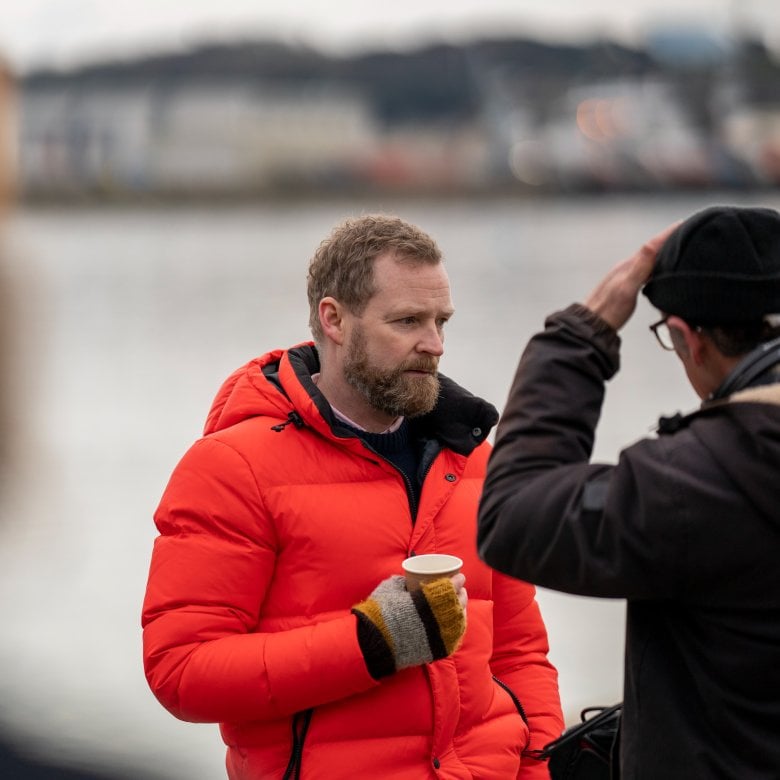A new life awaits: my personal journey to AI | Dr Kingsley Marshall

This article was written by Dr Kingsley Marshall, Head of the School of Film & Television at Falmouth University. Kingsley is leading Falmouth's contribution to the Charismatic consortium, a new project exploring AI driven story telling for screens.
For so much of my life artificial intelligence has only ever been a feature of science fiction: often as a creative plot device or even a character to pose questions of the viewer and reader about the fundamentals of what it is to be human.
And yet more than 40 years later, I am about to embark on a research project that examines how generative AI tools can be used by creatives. And central to the project is not just AI’s practical application and the new creative opportunities it could unlock, but also those familiar philosophical questions about what humanity is and the relationship between us and technology.
So how did I get here and how will it inform the work I do with my colleagues from Charismatic.ai, Channel 4, University of the Arts London and Aardman Animations, as well as the creatives we will consult with along the way?
Born in the 1970s, Star Wars movies and Buck Rogers serials that played in a Saturday Kids Cinema Club that ran in my local Odeon were my gateway to sci-fi. A family treat was a trip to the local video rental store, and friends at secondary school were quick to share VHS collections that (occasionally) strayed beyond what we were permitted to see in the cinema.
The school yard trade opened the door to indie and global cinema, and an increasingly provocative line in science fiction that tackled big ideas. In 1983 I became a tiny bit obsessed with the movie War Games, a cold war classic based on (kind of) true events where a teenage hacker engages with a military supercomputer. A year later the movie Threads dropped on TV, depicting a nuclear attack on Sheffield. I had the cover of that week’s Radio Times, with a bandaged traffic warden toting a rifle, on my wall. You get the picture.
Despite these films’ seemingly exotic locations and characters, I made connections with my lived experience. The mining ships and factories that formed the backdrop of Alien spoke to the decline around me in post-industrial Britain. The environmental and biodiversity collapse of the evening news was well-represented in Blade Runner’s Los Angeles setting.
The militarised cops, populist politics, and the powerful voices of corporate tech bros of RoboCop and Total Recall resonate even more today than they did when they were released: what is Tesla’s Cybertruck if not a lift from a sci-fi production designer’s scrapbook?!
Having inevitably made my way to academia, working in the School of Film & Television at Falmouth gives me the opportunity to share and talk through the ideas of complex philosophical films with like-minded people. The films spark great discussion, often driven by students connecting with the situation presented to the characters and how these ideas of the future relate to our own varied lived experiences.
I’ve written about a lot of TV and film over the last decade or so, and I’ve run over a hundred masterclasses with filmmakers, from first-time filmmakers to Academy Award winners across pretty much all of the roles in film and TV. But I’ve never strayed too far from that original passion for science fiction and have sometimes managed to combine the two.
A couple of years ago I began a run of work that returned to this theme. I edited a collection on Black Mirror, with my own chapter focused on the use of AI technology. The release of Denis Villeneuve’s Blade Runner 2049 gave me the space to write about machine consciousness. But it was the HBO reimagining of Westworld that provided the path to this latest project.
A paper I wrote on Westworld drew the attention of a creative AI company in the UK. We shared similar views, and spoke about how ideas could potentially be realised through emergent AI technologies. As I approached a few tech companies around the world and other broadcasters and studios, we were able to secure some funding to ‘make real’ some of these ideas through a research and development project - which is now being backed by Innovate UK, to ensure AI is at the heart of the future economy.
Since April 2024 I’ve taken my ideas of the contextual representation of AI on screen, into a project that considers the application of a bespoke AI in creative spaces with other screen creatives. I’m heading up a team at Falmouth including filmmakers Dr Rachael Jones and Scott Barley, working with our partners and digital sociologist and tech ethicist Lisa Talia Moretti.
We’ve been working through some of the creative problems presented by the use of emergent technology in the screen industries. We’re developing and testing tools that can augment this work in a consortium focused on making an intervention that works in conjunction with creative practitioners, empowering underrepresented voices and, ultimately, creating new forms of story.
We’ll also be looking at potential new business models to ensure creatives are paid for their ideas and work.
This project is an important part of the tech revolution developing before and around us – it is my hope this AI project helps contribute to a new purposeful, and eminently human, creative life that awaits us.